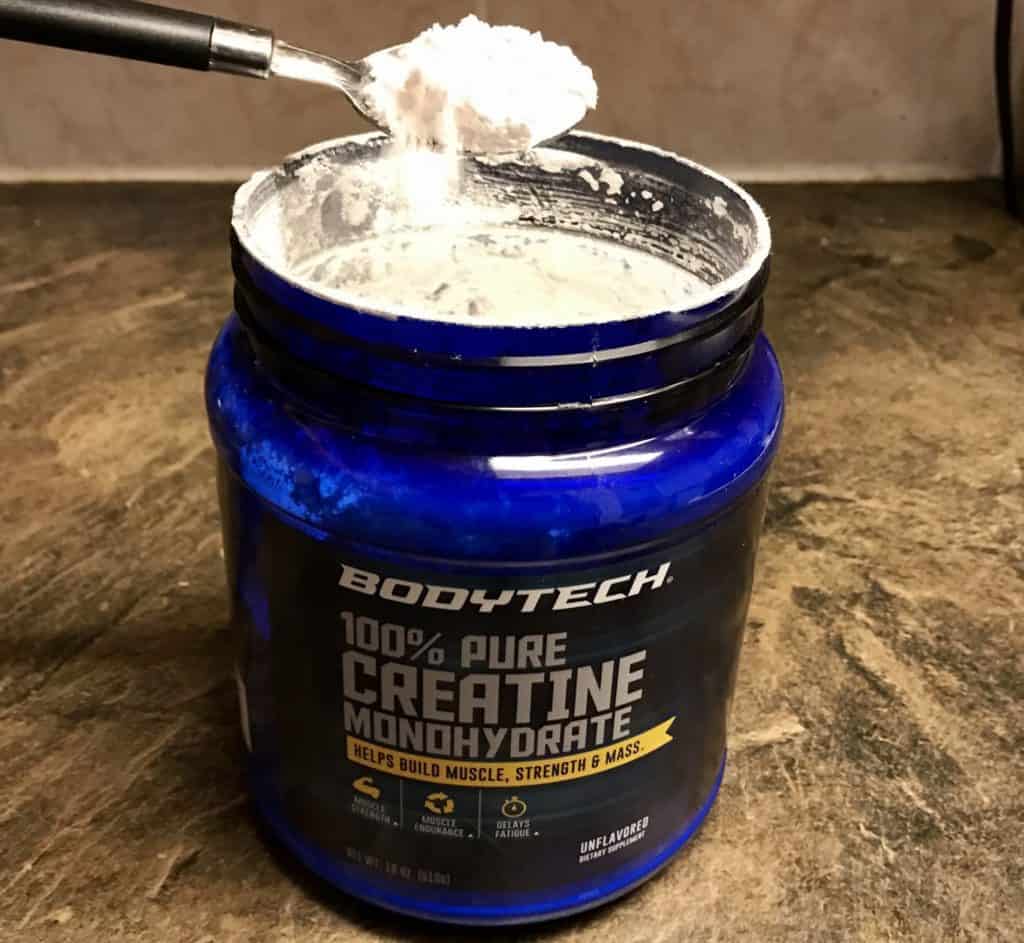
Creatine is by far the most proven and researched dietary supplement. It has been shown time and again to increase strength, power, and muscle mass. There are even some early indications that it may improve cognitive (brain) function. In addition, it’s one of the cheapest supplements you could buy despite its effectiveness. A container runs only about $15 and can last several months.
But the one trepidation people have about creatine is related to water retention. They are concerned that creatine supplementation will lead to bloating and excessive water retention.
Is this concern warranted? Does creatine use cause water retention in the body?
Creatine works by pulling water into the muscle cells, but not subcutaneously (under the skin) like some people think. Therefore water retention under the skin isn’t really a possibility. Some people may experience stomach bloating from creatine use due to poor hydration or other issues.
How Creatine Works
If there were no water retention effects from creatine, then creatine wouldn’t work in the first place. By pulling water into the muscle cell, creatine helps to increase the volume of the cell while also keeping it hydrated. Increasing the volume would obviously make the muscle bigger in size. This effect makes sense since muscle is predominately made up of water anyway.
If your face is bloated or skin looks puffy, this is not from creatine. It is likely due to dietary factors like an elevation in sodium. The type of water retention from creatine is called intracellular, meaning within the cell itself. 95% of creatine is stored intramuscularly.
A hydrated cell is also an anabolic one. Supplementing with creatine leads to less muscle breakdown. Creatine isn’t all about water though; it also helps the uptake of other nutrients into the cell (notably carbohydrates).
This has lead to the misconception that creatine must be taken with carbohydrates for better absorption. While creatine may help with carbohydrate storage in the muscle, the reverse is not true. So the old advice of taking creatine with something like grape juice turns out to be a myth, at least with regards to enhanced creatine uptake.
Creatine also works as a direct energy source for exercise. Similar to the way we burn carbohydrates and fats for fuel, we do the same with creatine. Creatine’s main function as an energy source is to fuel high intensity, short-duration activity (sprinting, heavy lifting). This is another indirect manner in which creatine can lead to muscle growth. Better workouts means more muscle in the long term.
Stomach Discomfort from Creatine
The one instance in which creatine may lead to bloating or stomach discomfort is when the user supplements with creatine as part of a loading protocol. This is when an individual takes a high dose of creatine in a short period of time to saturate the muscles more quickly. Due to this possible side effect, loading is not a practice that I often recommend. Taking the recommended 3 to 5 gram per day dose will eventually saturate the muscles with creatine.
Inadequate water intake could also lead just to stomach discomfort. As we mentioned before, creatine pulls water into muscle cells. If you are not properly hydrated, it may lead to bloating and stomach pain.
There is a form of creatine called creatine hydrochloride that can mitigate some of these problems. This is simply creatine with hydrochloric acid, aka the acid in your stomach. Some people have found this to be favorable when it comes to bloating compared to regular creatine monohydrate.
On a supplement facts panel, creatine hydrochloride will be shown as creatine HCL.
Creatine Non-Responders
There is a small population of people who don’t seem to experience the benefits of creatine, known as creatine non-responders. It is estimated that up to 30% of the population may be included in this group, although the number is likely much lower since the study only had 11 people total.
There are numerous factors that determine whether someone would respond to creatine supplementation. The most obvious would be an individual’s initial level of creatine in the body. If someone already has high levels of creatine in the body, perhaps due to diet, then creatine supplementation wouldn’t change much.
Muscle mass can also affect creatine’s efficacy. Higher levels of muscle allow for more opportunity for creatine absorption.
Creatine is a safe, well-researched supplement suitable for both men and women. It has numerous fitness benefits and potentially health benefits that span beyond the gym.
